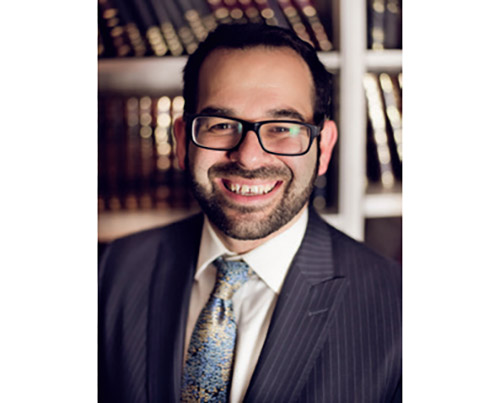
Around my Shabbat table I like to ask thought-provoking questions that elicit discussion. The questions usually center around the parsha or around values. For example, I like to ask, “If you were given $100 million to fund just one Jewish cause, what would it be?” These discussions are fascinating and insightful. In the future, I hope to discuss those suggestions. Today, I’d like to discuss a more urgent question. Is there a mitzvah that is central to or reflective of our generation that could be deemed most significant? Can we pinpoint the essential struggle for our generation of Jews?
For many, in the earlier part of the 20th century, that mitzvah was shemirat Shabbat, keeping Shabbat. We all heard the stories about the bosses who threatened, “If you don’t come to work on Saturday, don’t bother coming back on Monday.” Many individuals risked everything they had by not going to work on Shabbat, even though they knew they would be without a job thereafter. In fact, this is what spawned the hashkama minyan (the Shacharit minyan that took place very early in the morning). People needed to pray very early Shabbat morning so that they had enough time to get to work. It is not for us to judge what someone ultimately decided to do, but it was clearly a challenge for the Jewish people at the time
What then is the central challenge for our generation?
One of the main students of Rav Avraham Yitzchak HaKohen Kook and central figure of Religious Zionism during the 20th century was Rav Yaakov Moshe Charlap (1882-1951). He also served as the rosh hayeshiva in Mercaz HaRav in Yerushalayim and was the rav of the Shaarei Chesed neighborhood. Rav Charlap wrote numerous sefarim, most well-known were his sefarim on Chumash and Yamim Tovim called Mei Marom. In those sefarim Rav Charlap wrote about both the revealed and hidden parts of the Torah to express his insights. One of the sefarim he authored was Mayanei HaYeshua, The Wellsprings of Salvation. The sefer discusses the themes of longing and waiting for redemption. In Chapter 45 he raises the question, what is the most urgent issue for Jews of that time? He suggests that there is one way to determine the answer. Look at what the other nations are trying to deter us from doing. Look at the protests, hate speech and the resolutions made around the world. For previous generations it might have been learning Torah, brit milah or shechita. Today, what are they attacking?
Almost prophetically, Rabbi Charlap argues that the challenge of our generation will be appreciating, recognizing and cherishing a real connection with the Land of Israel. It is shocking to compare how many protests there have been against other countries that are committing atrocities and genocide and how many protests there have been against Israel. Countless resolutions emerge one after another against the State of Israel time and again. Rabbi Charlap suggests that this also gives us a chance to look inward. Of course we need to continue to lobby our politicians for the safety and security of Israel. But is there more we can be doing?
We are living in historical and unprecedented times. Do we appreciate the gift of the Land of Israel that we have? Do we have an emotional connection and relationship with Israel or is it only a great vacation spot with good weather, kosher restaurants and activities for the kids? Are we doing a good job of internalizing this bond that we have to our children?
We say in Birkat HaMazon “v’tolichieinu komimeyut l’artzeinu,” which is translated as “and we should be brought in standing upright to our country.” What is the significance of how we enter our country? For thousands of years we, the Jewish people, have not walked into a country standing upright. If we were lucky we were running into the country hobbling, shattered and hungry. Now we are blessed to live in a time where we Jews have a country that we can go to standing upright, strong and confident
As Jews in galut (exile) we must reflect upon and re-evaluate our connection to Israel and its people. Are we doing everything we can? Is Eretz Israel a significant part of our lives? As we begin year 71 of Israel, we and our communities must ask ourselves how we will stay connected and engaged.
By Rabbi Andrew Markowitz
Rabbi Andrew Markowitz is the associate rabbi of Congregation Shomrei Torah in Fair Lawn.










